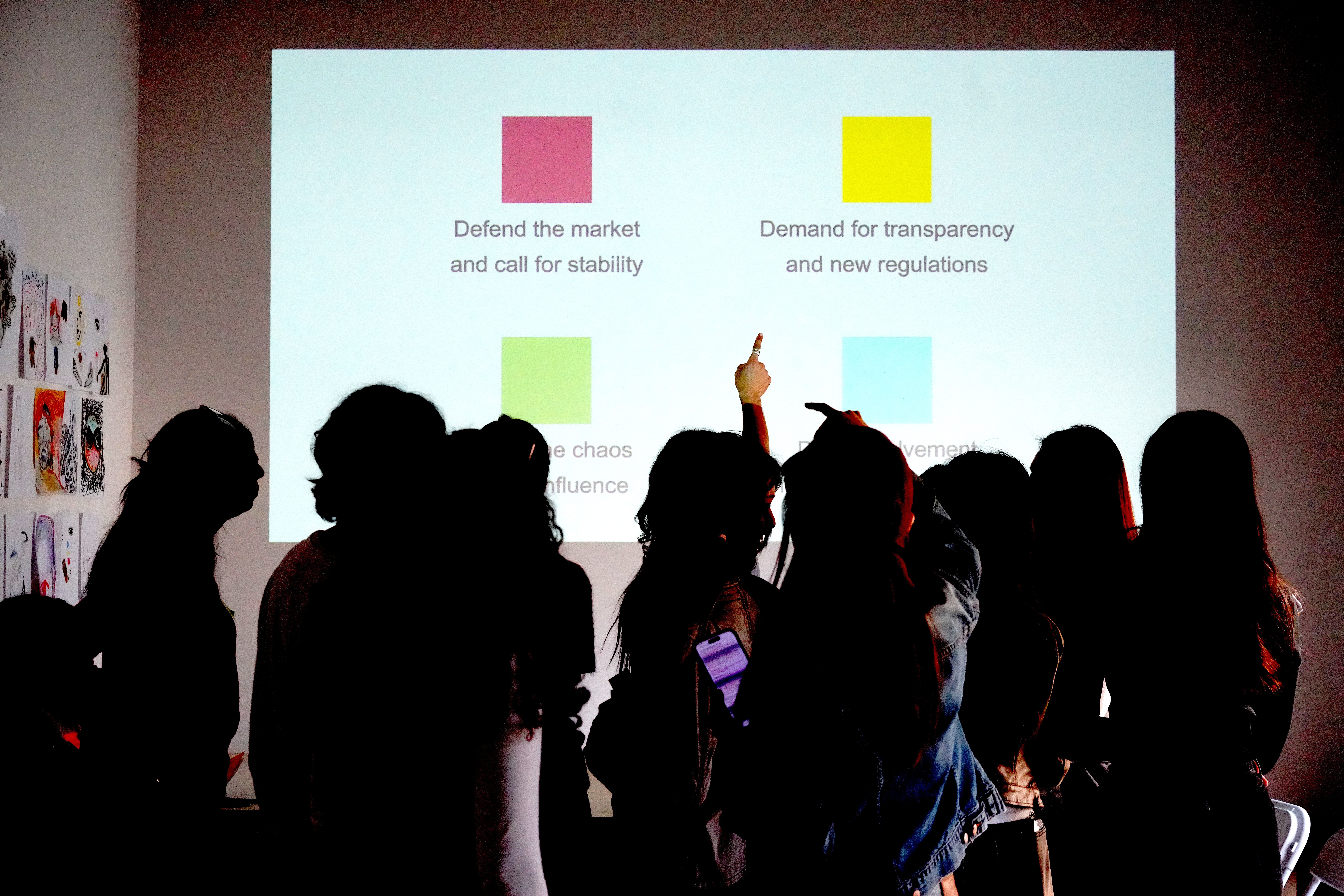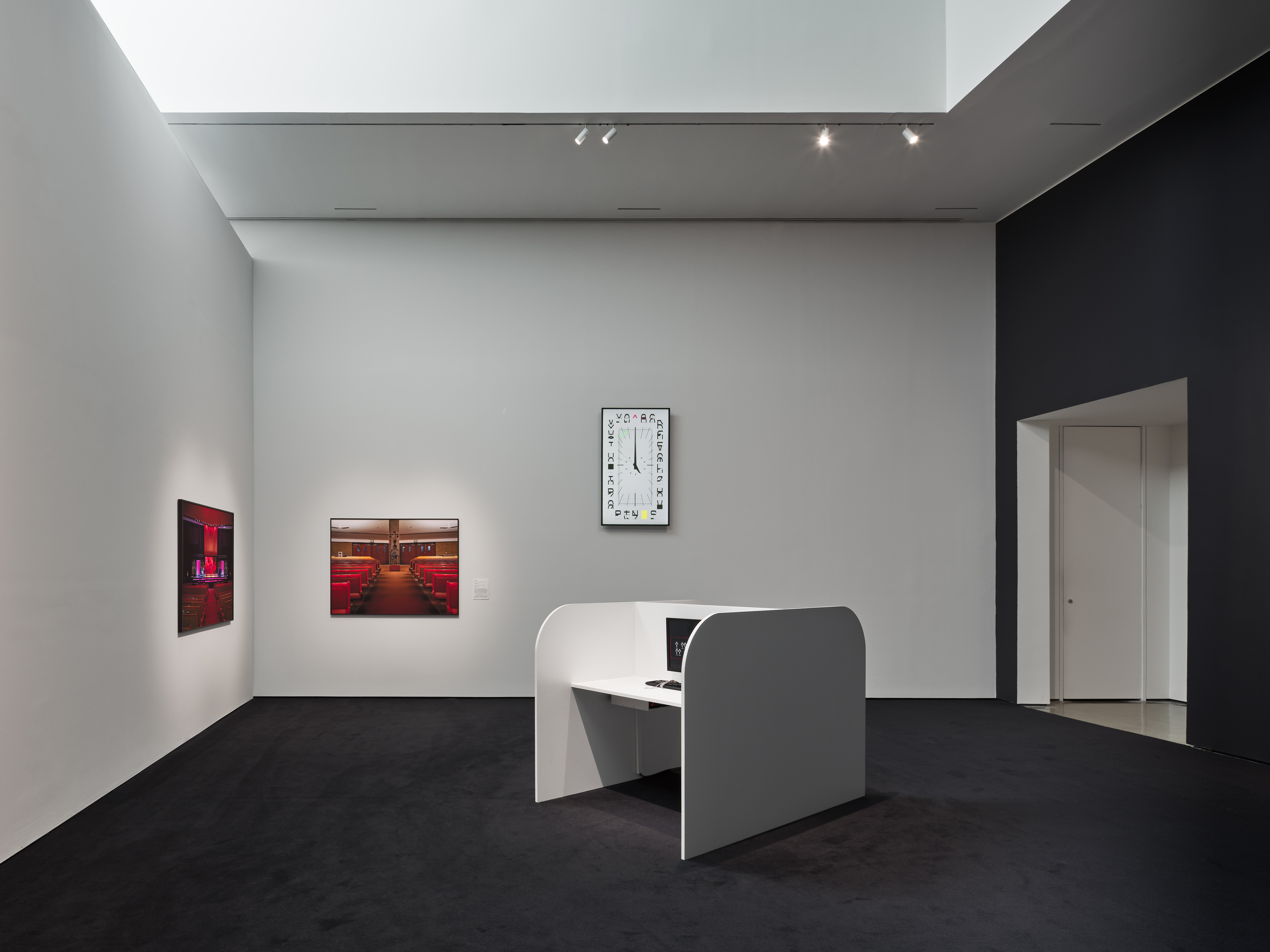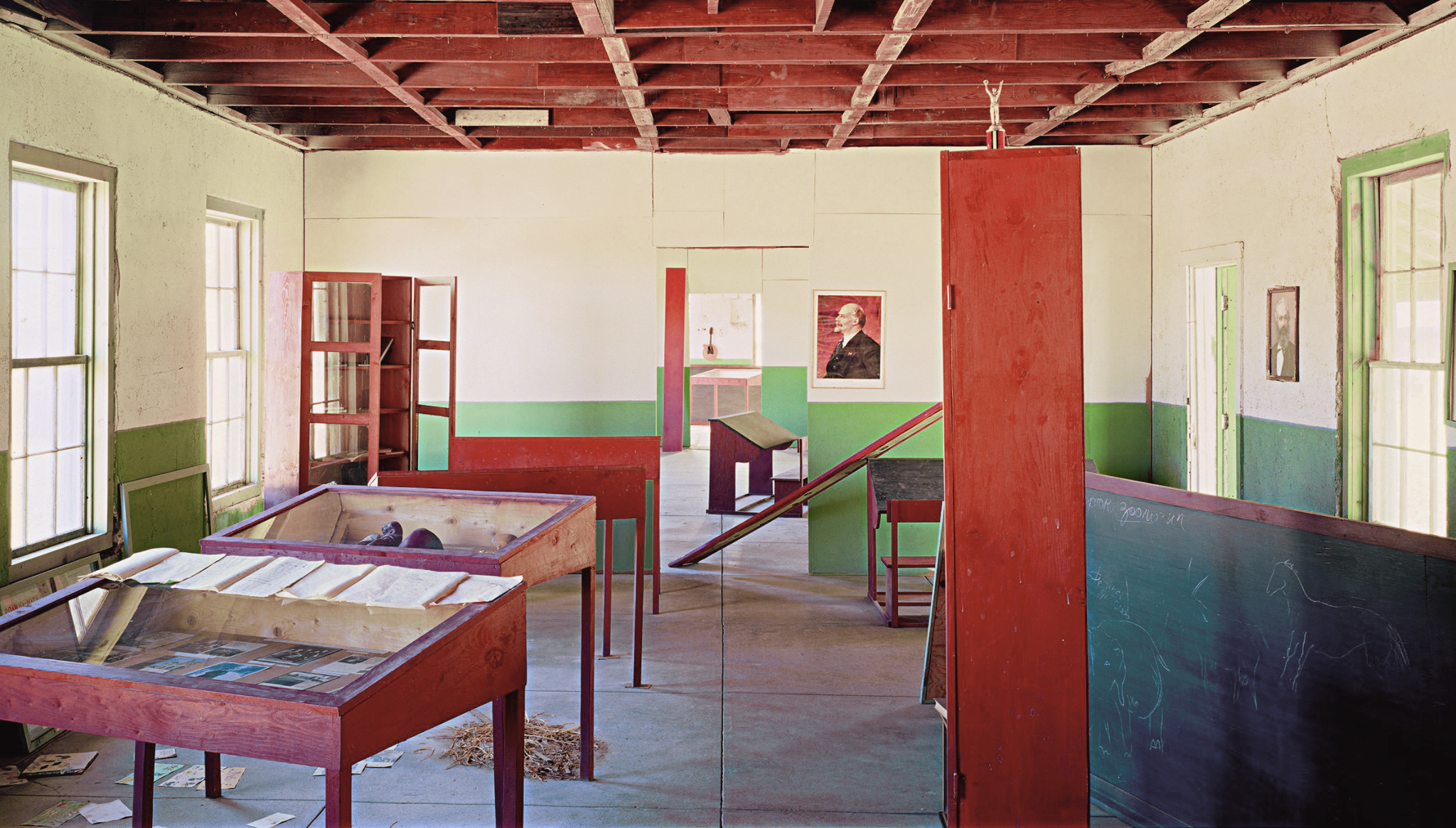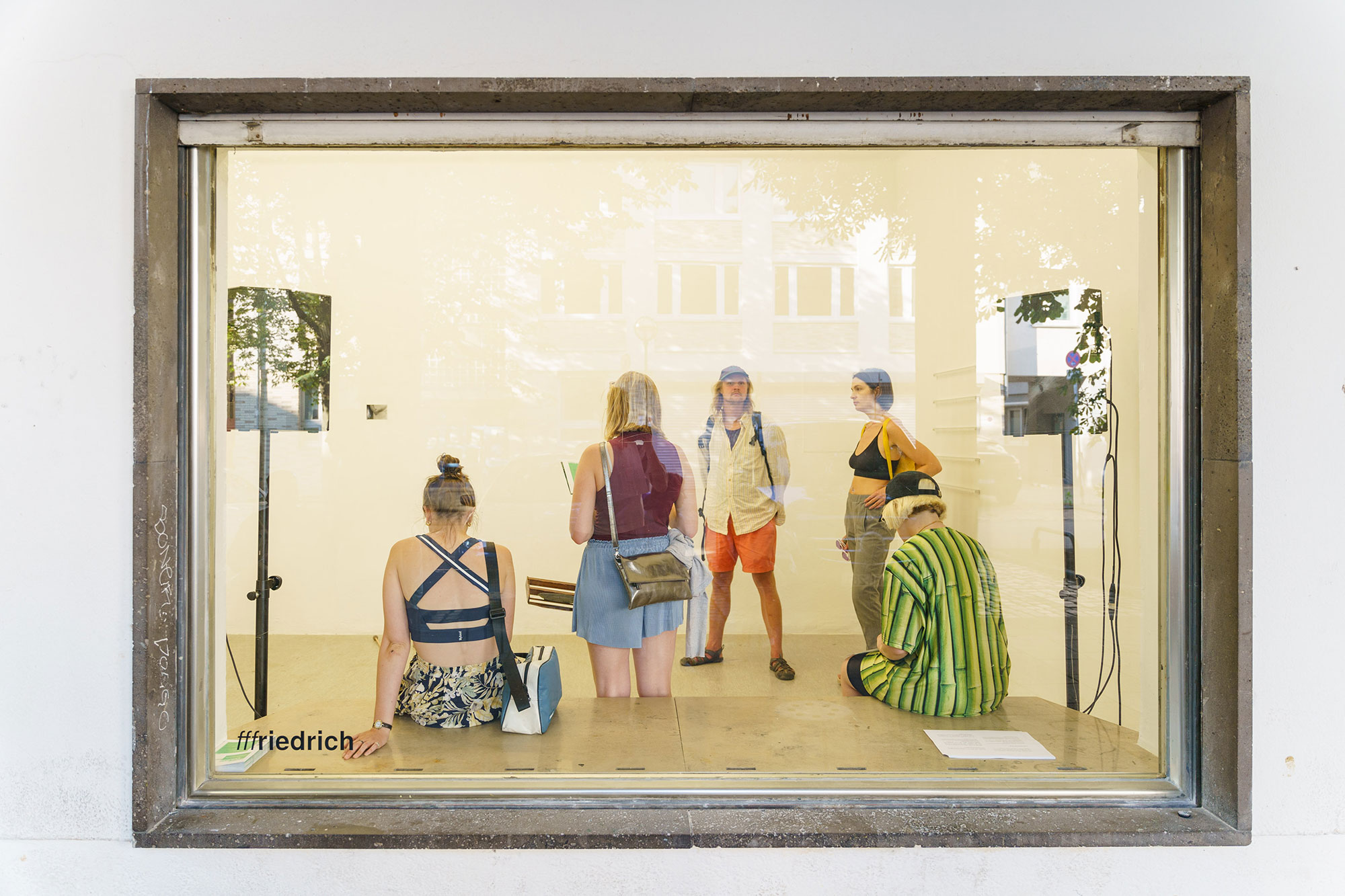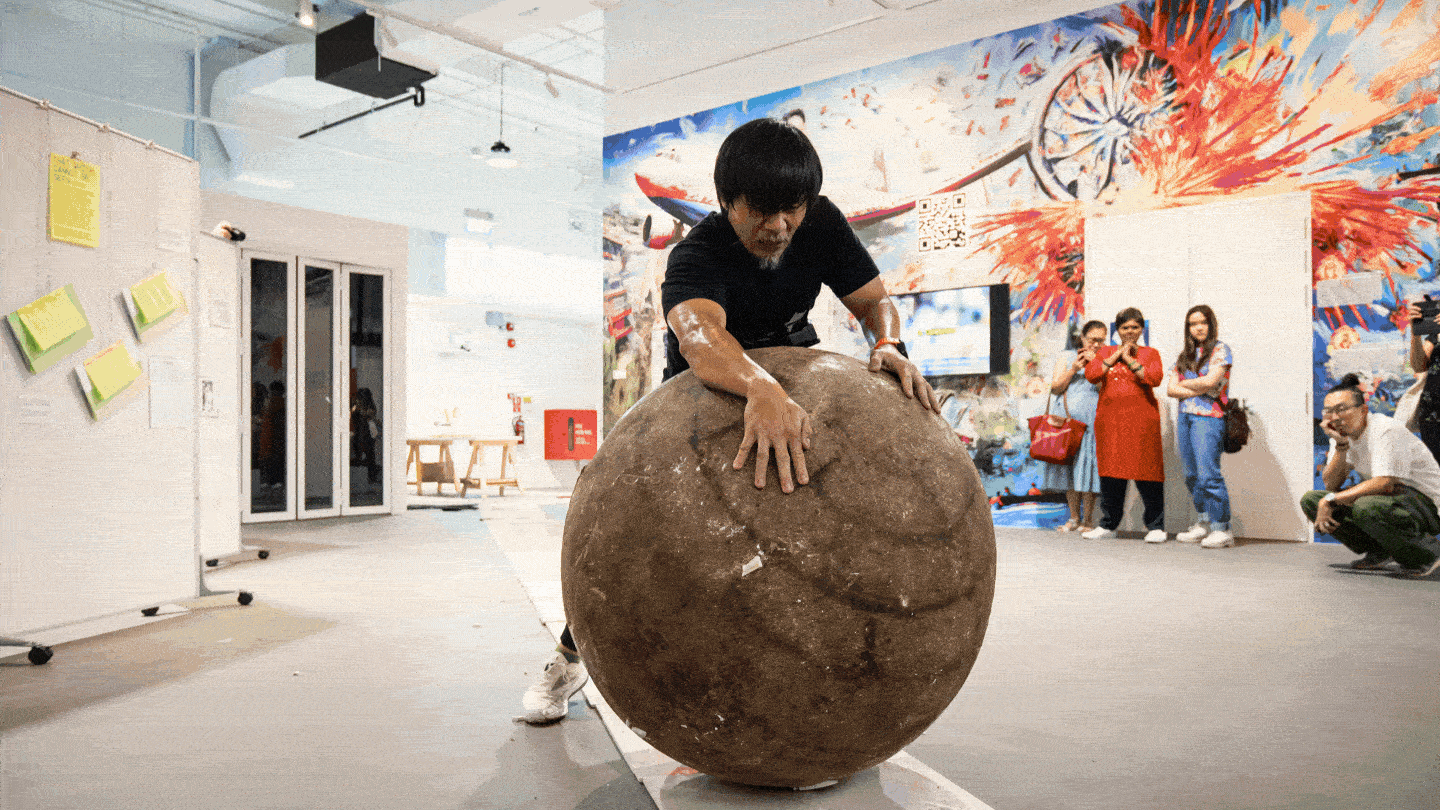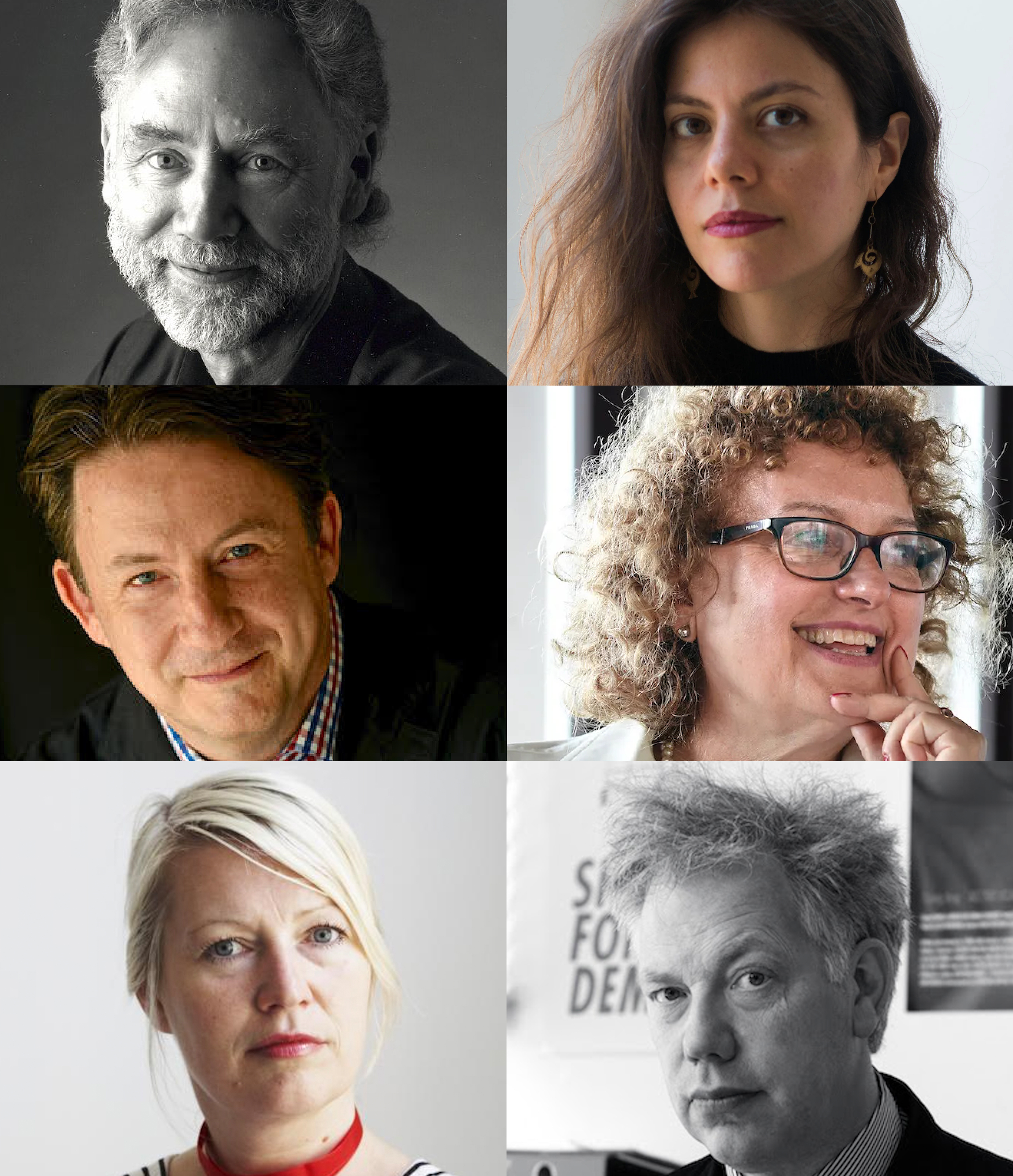Why do you teach?
This is easy, I barely teach. My role is to define and to maintain a constant conversation with the teachers about the curriculum, the methods and the character of the school, and the several programs we support that are open to the public. I am, it’s true, really involved in mentoring. I do many hours of one-on-one sessions with the students. I also take long care of the whole process leading up to the graduate exhibition.
I never refer to myself as a teacher. I have too much respect for the word and the practice. But I am comfortable with transmitting ideas and making artists discover new aspects of their practices through structured conversations and exchanges. I have a passion for all the processes that lead to the production and presentation of a work. I still consider this process something very unique that demands a high level of attention to all the details, to the language we use to describe their practices, to the display of works, to the potential contexts in which works will exist, etc. Offering a space to develop a way of talking about this process may help artists envision dimensions of their own practice that they haven’t yet been aware of.
How do you distinguish teaching from mentoring? Both would seem to have a profound influence on an artist’s education.
This is a very interesting question. I came to realize the incredible importance of mentoring from my music education. There, it is common to alternate collective classes with one-on-one exchanges. Lately, I have been reading Matthew A. Kraft and his views on mentoring, which see the future of schooling in the fostering of personal exchanges that are not only teacher-to-student but also, in our case, alumni-to-student or even, in collective sessions, student-to-student. [footnote See →.] Mentoring encourages a different way of transferring not only ideas but also affections, interests, and points of view and can be very enriching. In my opinion, the combination of more traditional seminars with other formats of transmission—technical mentoring, collective mentoring, individual mentoring—also produces a different way of bonding and relating among all of us, that is, a more transversal and kaleidoscopic way of understanding the community that we form together.
What ideas animate your conversations with faculty and your direction of the Institute Art Gender Nature, HGK Basel FHNW?
We often discuss different ways of maintaining motivation and different formats and methods to enable transmission. Our team is inventive and never tires of exploring new ways to address every language and format in the arts. But the teachers are also genuinely interested in the students. We discuss what we learn from them, not just what we give to them. This is one of my favorite things—when we name what we learned through these exchanges with students. I must say that thanks to being here, my own writing is completely different. For the first time, I have been so motivated to write, as if I were speaking the text as an expansion of oral transmission.
Care is a compelling way to describe organizing the annual graduate exhibition, given the linguistic ties between “curating” and “caretaking.” Looking back from the graduation exhibition to the seminars and projects that precede it in the artists’ time at the school, what role might care play in the curriculum?
Care, affection, joy, and friendship are practices. They need to be lived and present in every way of relating. Our teachers are incredibly invested in relating and sharing ideas among themselves and also in implementing nearness, ways of being close to each other—not only to students but also to other programs—which allows us to remain attentive, generous, and able to listen, and, yes, to maintain a reassuring mood. But keeping in close communication is easier said than done, and I think we all are really making an effort to be there for one another. People have said that we spoil students. Given the current climate of negative narratives about the future and the very poor scenarios about the future of art, there is no such thing as too much attention and receptivity to younger artists’ concerns.
In your time as head of the Institute Art Gender Nature, HGK Basel FHNW, how have students informed the character of the school? What topics or concerns have they introduced into discussion?
Of course, the transformative topics of gender, equality, climate emergency, and natural rights have been very present and articulated in their own terms. But their incredible interest in each other’s works has fostered a particular climate of exchange; this extends to their commitment to community work and their generosity toward all those students who joined the school as refugees from Syria and, later, Ukraine.
The students have a constant thirst for new projects and ideas and formats. But I also see a growing concern about their future, their economic survival, their difficulties of staying in the EU if they are from non-EU contexts. They are very sensitive to questions of health, particularly mental health. I think that I and the teachers have all become much more sensitive to and aware of how much the students need our active support within the Institute and all of our support in the social realm.
In what ways can an art school address those concerns about the future?
It is important to develop a continuous conversation about the transformation of art systems. Addressing how economic and geopolitical circumstances affect the art landscape is fundamental. And so it is our mission to better understand different sources of funding, different ways of acting-in-the arts, and different cultural regions, which we address through specific seminars and gatherings. We are also about to launch an online publishing initiative—“Wild Papers”—that is specifically oriented to tracing future scenarios. Edited by Ingo Niermann, the project will constitute a collection of concise scenarios that affect the future of art, technology, gender, nature, and all the interrelations among these fields. We have asked the different authors that nourish the series to script an idea, to outline a proposition, or to imagine a world and express it in a personal and eloquent way, as if they were seated next to the reader. This project is very special to us. We decided to publish it in English, German, and Korean, which gives us an opportunity to link with audiences and communities of young students and artists outside the school and broaden our horizons.
How do students and teachers practice care and friendship with publics outside of the Institute?
We now have three formats to directly interact with audiences: the “Art Taaalkssss” conceived by curator and teacher Elise Lammer; the symposia, conceived and conducted by Quinn Latimer and myself—the next one, “Genders of the Forests,” will be held on May 24 and 25; and the exhibitions at der TANK, our humble but very nice space. With the help of Sonia Fernández Pan, we have also created a significant series of podcasts, which are free to download from our site and different platforms. We are trying to create moments of sharing and opportunities for meeting together. This, of course, is strengthened through repetition and building trust among the artists and people around us.
We also have special projects, like the fourteen nights of performance we did every Friday this autumn at the Fondation Beyeler. These contributed a lot toward this feeling of nearness and care that we seek to foster. “I Hear a New World – 14 Miauws for the Future” was an initiative of the Beyeler Foundation to celebrate their twenty-fifth anniversary. We conceived a cabaret-like performance program of three hours where students, alumni, and friends of friends performed for the public. It was so mesmerizing that the program now continues once a month under the title “The Night of the Smiling Moons.” But now, instead of more formal performances, we ask the audience to interact with the artists in small groups. And it works so well! We are constantly interested in exploring how this flow of energies and ideas between the Institute and the public sphere can be reinvented again and again.
Building trust, fostering community, and maintaining motivation are challenges in any education environment but central to the Institute’s mission. How might other educators, mentors, curators, or “actors-in-the-arts” take up this approach? Where does one begin?
Maintaining regular conversation among staff and students is really crucial, but it is a commitment that somehow goes beyond more traditional ideas of teaching. I do not know how to describe this in a precise way, but we are quite close to each other. This allows for a continuous review and assessment of the situation of the school. This takes time and also gets very close to the idea of a friend group or people with bonds that go a little beyond the classical professional understanding of a job. So, it is not for everyone, I assume. It may even sound strange to some, and yet, it is also very rewarding, since the feeling of having each other is very present for the teachers and students. Corporate staff-management approaches would be against this approach, so, I cannot advise it, technically speaking. And yet, I myself believe in inhabiting environments at work that are simply pleasant, that fight any form of toxicity, that foster the skills and capabilities of each of us. Going to school and finding calmness and a sense of joy is the goal.
What do you envision for art education’s future and how can it be achieved?
I think committed attention to preserve diversity—in identitarian and economic senses—is crucial. Education is a right and a condition that assures a better, more equal, and more democratic society. However, disrespect for education, and the growing sense that it is “enough” to gain skills and organizational methods, endangers a more complex and holistic view on the role of education in society. Education names the process in which you train your skills and capabilities but also in which you develop tools that assist you in problems and conflicts and that remain with you for life, allowing you to trust others, to become a better citizen, to contribute, and to give … If we lose these we lose protection and our collective sense of self. So, we ought to consider education and health—social well-being—as going hand-in-hand together into the future.
See →.









